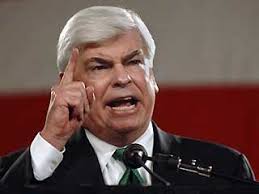,Subject: txt mny trade -
Senator Chris Dodd's (D-Conn.) 1,400-page financial reform bill contains many economic land mines, says the Wall Street Journal.  Here's one of the worst: Provisions that would make it harder for business start-ups to raise seed capital.
Here's one of the worst: Provisions that would make it harder for business start-ups to raise seed capital.
Currently, wealthy individuals who want to invest directly in a new business can do so with minimum interference from regulators. Entrepreneurs depend on these "angel" investors, since many new businesses lack the collateral for bank loans and are too small to interest venture capitalists. Amazon, Yahoo, Google and Facebook all benefited from angel investors, who typically target companies under five years old:
- According to a 2009 Kaufman Foundation study, such firms are less than 1 percent of all companies yet generate about 10 percent of new jobs.
- Between 1980 and 2005, companies less than five years old accounted for all net job growth in the United States.
- In 2008, angels invested some $19 billion in more than 55,000 companies.
Dodd's bill would change all this for the worse, says the Journal.
 Most preposterously, it would require that start-ups seeking angel investments file with the Securities and Exchange Commission and endure a 120-day review. Rare is the new company that doesn't need immediate access to the capital it raises, and a four-month delay is the kind of rule popular in banana republics that create few new businesses.
Most preposterously, it would require that start-ups seeking angel investments file with the Securities and Exchange Commission and endure a 120-day review. Rare is the new company that doesn't need immediate access to the capital it raises, and a four-month delay is the kind of rule popular in banana republics that create few new businesses.The legislation also removes a federal pre-emption that prevents start-ups and investors from being subject to 50 different state regulators.
The North American Securities Administrators Association, which represents state regulators, argues that federal pre-emption contributes to fraud. But angel investors don't use broker-dealers and other middlemen linked to recent investment scandals. Nascent companies often seek financing from multiple investors in different states, and a state-by-state regulatory regime would mean higher compliance costs and more legal risks - accomplishing only the opposite of what our country needs right now...
READ MORE
.














No comments:
Post a Comment